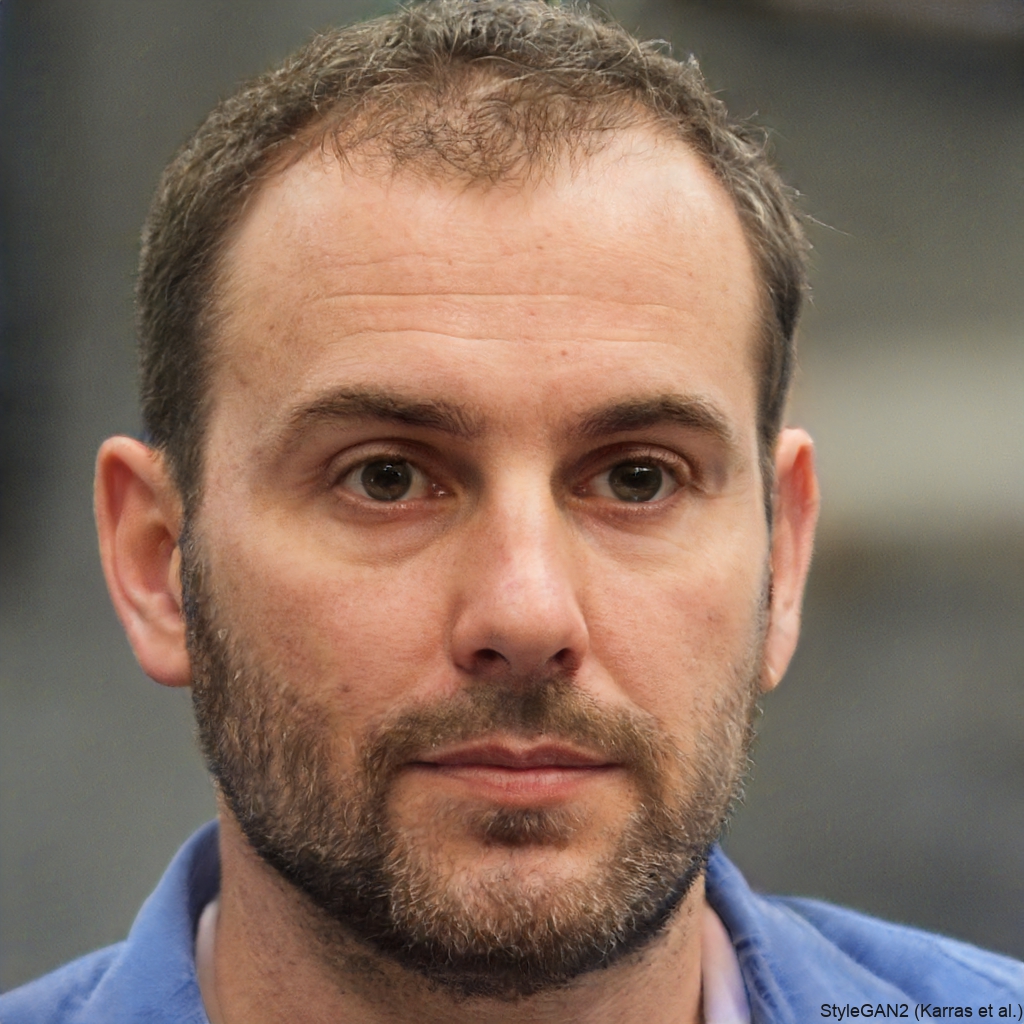Introduction: The Quiet Path to Wealth
Imagine this: a middle-aged couple lives in a modest home, drives a ten-year-old car, and shops at discount grocery stores. They don’t post luxury vacations on social media or own designer clothes. Yet, when they retire, they have over $3 million in savings. How? They weren’t high-powered executives or lottery winners—they were ordinary people who mastered the power of frugal living.
This isn’t a rare exception. In fact, research shows that many millionaires live below their means. According to The Millionaire Next Door by Thomas J. Stanley and William D. Danko, over 80% of millionaires in the U.S. are self-made, and most practice consistent frugality. They don’t earn the most—but they save the most.
In a world obsessed with fast fashion, instant gratification, and “treat yourself” culture, frugality is often misunderstood. It’s not about deprivation or living in misery. It’s about intentionality—spending less on things that don’t matter so you can spend more on what truly does.
In this article, we’ll explore how ordinary people use frugal habits to build extraordinary wealth. From everyday budgeting tricks to long-term mindset shifts, you’ll discover practical strategies that anyone can apply—no matter your income level. We’ll look at real-life examples, break down common myths, and show you how small daily choices can compound into financial freedom.
Let’s begin by understanding what frugality really means—and why it might be the most underrated superpower in personal finance.
What Frugality Really Means (And What It Doesn’t)
When you hear “frugal,” what comes to mind? A person clipping coupons? Refusing to eat out? Maybe someone who repairs their own shoes?
While those behaviors might be part of it, true frugality isn’t about penny-pinching—it’s about value-maximizing. A frugal person doesn’t automatically choose the cheapest option; they choose the option that gives the best long-term value.
For example:
- Buying a $150 pair of boots that lasts 10 years is more frugal than buying five $30 pairs that wear out every two years.
- Cooking at home most nights isn’t just cheaper—it often leads to better health and more family time.
- Driving a reliable used car instead of a new loan-covered SUV saves thousands in depreciation and interest.
Frugality is not the same as being cheap. Cheap avoids spending at all costs, even if it leads to poor quality or wasted time. Frugal spends wisely, investing where it counts and cutting waste elsewhere.
Take Sarah, a schoolteacher from Ohio. She earns $55,000 a year but has saved over $600,000 by age 50. How? She buys groceries in bulk, uses public libraries instead of buying books, and vacations at state parks. But she also splurges—on annual trips to visit her grandchildren and high-quality kitchen tools that last decades.
Her rule? Spend lavishly on what brings lasting joy. Cut ruthlessly on what doesn’t.
This mindset shift—from mindless spending to conscious consumption—is the foundation of frugal wealth-building. And it’s available to anyone, regardless of income.
The Compound Effect of Small Savings
You don’t need a six-figure salary to become wealthy. You need consistency.
Here’s a powerful truth: small savings, compounded over time, can create massive wealth. Let’s look at a simple example.
Imagine two people:
- Alex spends $5 daily on coffee and lunch out—$1,825 per year.
- Jamie makes coffee at home and packs lunch—saving that $5 daily.
If Jamie invests those $1,825 annual savings at a 7% average return (historically realistic for the stock market), here’s what happens:
| 10 | $18,250 | ~$25,500 |
| 20 | $36,500 | ~$75,000 |
| 30 | $54,750 | ~$175,000 |
After 30 years, Jamie has nearly $175,000—just from skipping daily takeout. Alex, meanwhile, spent over $54,000 on meals with nothing to show for it.
This is the compound effect: tiny habits, repeated over time, create exponential results.
Other small frugal choices with big impacts:
- Canceling one unused subscription ($15/month) = $180/year → ~$50,000 in 30 years.
- Buying generic brands (saving 20% on groceries) = $1,000/year → ~$100,000+ in 30 years.
- Walking or biking to work 2x/week saves gas, parking, and boosts health.
The key isn’t perfection—it’s progress. Saving $2 a day is better than saving $0. Doing it for 10 years beats doing it perfectly for 6 months.
As financial expert Dave Ramsey says: “Wealth is not about having a lot of money. It’s about having a lot of options.” And every dollar saved is a step toward more freedom.
Frugality vs. Stinginess: The Mindset Difference
Not all money-saving behaviors lead to wealth. Some actually limit your potential.
There’s a crucial difference between frugality and stinginess:
- Frugal people save to gain freedom, security, and opportunities.
- Stingy people save out of fear, scarcity, or guilt.
A frugal person might:
- Buy a used car to avoid debt.
- Cook at home to eat healthier.
- Use a library to access free learning.
A stingy person might:
- Avoid medical care to save $50.
- Refuse to tip service workers.
- Damage relationships by never spending on others.
The first builds wealth and well-being. The second sacrifices health, happiness, and connection.
Consider Mark, a software engineer who earns $120,000 a year. He drives 45 minutes to a cheaper gas station, uses expired coupons, and argues with cashiers over pennies. He’s saved $200,000 by 40—but he’s also stressed, isolated, and resents money.
Then there’s Lisa, who earns $65,000. She buys secondhand clothes, meal-preps weekly, and negotiates bills—but also takes her kids to museums (free days), donates to charity, and hosts potlucks instead of expensive dinners.
Lisa has $280,000 saved by 45. More importantly, she feels rich in time, relationships, and peace of mind.
Frugality works best when it’s aligned with your values. Ask yourself:
- What do I truly care about? (Family? Travel? Freedom?)
- Where does money give me the most joy?
- What expenses feel like “leaks” in my life?
When your frugal habits serve your goals—not fear—you build wealth without burning out.
Everyday Frugal Habits That Build Wealth
You don’t need extreme measures to live frugally. In fact, the most effective habits are simple, sustainable, and integrated into daily life.
Here are seven practical frugal habits used by real millionaires:
- Track Every Dollar
Knowledge is power. Use a free app like Mint or a simple spreadsheet to see where your money goes. Most people are shocked to find $200+/month on forgotten subscriptions or impulse buys. - Follow the 24-Hour Rule
Before any non-essential purchase over $50, wait 24 hours. You’ll avoid 80% of regrettable buys. - Shop with a List (and Stick to It)
Grocery stores are designed to tempt you. A list keeps you focused. Bonus: plan meals weekly to reduce waste. - Buy Used First
From furniture to electronics to cars, used items often work just as well—for half the price. Check Facebook Marketplace, Craigslist, or thrift stores. - Negotiate Everything
Did you know you can negotiate medical bills, cable rates, and even credit card interest? One 10-minute call could save $500/year. - Automate Savings
Pay yourself first. Set up automatic transfers to savings or investments on payday. Out of sight, out of mind—and growing. - Embrace “No-Spend” Challenges
Try a weekend or week where you spend only on essentials. You’ll rediscover free joys: hiking, board games, cooking, reading.
These aren’t about deprivation—they’re about awareness and control. And they compound. Saving $300/month at 7% return = $300,000+ in 30 years.
Start with one habit. Master it. Then add another. Small steps create big change.
The Psychology of Spending: Why We Overspend (And How to Stop)
Even with the best intentions, we all fall into spending traps. Why?
Because your brain is wired to spend.
Evolutionarily, humans are designed to seek immediate rewards. A sugary snack now feels better than long-term health. A new gadget brings instant joy—future debt feels abstract.
Modern marketing exploits this. Ads create FOMO (fear of missing out), social media shows curated luxury lives, and “buy now, pay later” schemes separate spending from pain.
But you can retrain your brain.
Three psychological tools to control spending:
- Visualize the Trade-Off
Before buying a $1,200 TV, ask: “Is this worth 2 months of groceries? 30 tank fills? 120 home-cooked meals?” Assign real-life value to money. - Use Cash or Debit (Not Credit)
Studies show people spend 12-18% more with credit cards. Cash feels more “real.” Try the envelope system: allocate cash for categories like food, fun, and transport. - Practice Gratitude
People who journal what they’re grateful for spend less on “mood-boosting” purchases. When you appreciate what you have, you crave less.
Also, avoid comparison. The Joneses might have a new car—but you don’t know their debt, stress, or sacrifices. Focus on your journey.
As Warren Buffett says: “Do not save what is left after spending, but spend what is left after saving.” Flip the script. Make saving the default.
How Frugal Living Fuels Financial Independence
Frugality isn’t just about saving money—it’s about buying back your time.
This is the core of Financial Independence, Retire Early (FIRE)—a movement where people use extreme frugality and high savings rates to retire in their 30s, 40s, or 50s.
Take the story of Pete Adeney (Mr. Money Mustache). He retired at 30 as a software engineer by living on 30% of his income. He bikes everywhere, fixes his own appliances, and grows vegetables. His net worth? Over $1 million—on a modest salary.
The math is simple:
- The faster you save, the sooner you can live off investments.
- The 4% Rule says you can safely withdraw 4% of your savings annually in retirement.
- So, to live on $40,000/year, you need $1 million saved.
- Save 50% of a $80,000 income? You’ll hit $1M in ~17 years.
Frugality accelerates this timeline. It’s not about living poorly—it’s about living intentionally so you can stop working sooner.
Even if early retirement isn’t your goal, frugality gives you options:
- Work part-time.
- Start a passion project.
- Spend more time with family.
- Travel the world.
Every dollar saved is a vote for freedom over forced labor.
And the best part? You don’t have to be extreme. Saving 20-30% consistently can get you there in 25-30 years—well before traditional retirement.
Debunking Myths About Frugal Living
Let’s clear up some common misconceptions:
Myth 1: “Frugality is only for low-income people.”
False. High earners can be wasteful. Frugality is a mindset, not an income level. Many six-figure earners live paycheck to paycheck—while frugal middle-class families build wealth.
Myth 2: “You have to give up all fun.”
No. Frugal people often enjoy life more. They prioritize experiences over things, find joy in simplicity, and avoid debt stress. A picnic in the park can be more meaningful than a pricey dinner.
Myth 3: “It takes too much time and effort.”
At first, yes—tracking spending or meal planning takes effort. But after 3-6 months, it becomes habit. And the time “saved” by not working extra years? Priceless.
Myth 4: “Frugality won’t make me rich.”
It’s not the only factor—but it’s a massive one. Combined with investing, frugality is a wealth accelerator. As the saying goes: “It’s not how much you make, but how much you keep.”
Myth 5: “I’ll start when I earn more.”
Dangerous thinking. Lifestyle inflation is real. People who earn more often spend more. Start frugal habits now, even if you save $10/week. Build the muscle early.
Frugality isn’t a punishment—it’s a superpower. It’s the quiet discipline that turns ordinary lives into extraordinary outcomes.
Real People, Real Results: Frugal Millionaires in Action
Let’s meet three real people who used frugality to build wealth:
1. The Janitor Who Left $8 Million
Ronald Read, a gas station attendant and janitor in Vermont, lived modestly his entire life. He wore thrift-store clothes, repaired his own car, and never owned a credit card. But he invested consistently in blue-chip stocks. When he died at 92, he left $8 million to local hospitals and libraries—shocking everyone who knew him.
2. The Couple Who Retired at 38
Joshua and Lauren from ChooseFI saved 60% of their combined income. They lived in a small apartment, drove used cars, and traveled cheaply. By 38, they had enough to retire. Now they focus on family, travel, and community projects.
3. The Teacher Who Saved $1 Million
Jill, a public school teacher in Texas, earned $50,000–$60,000 a year. She lived in a paid-off home, avoided debt, and invested in low-cost index funds. By 62, she had over $1.2 million—proving you don’t need a high salary to win.
What do they have in common?
- Low lifestyle inflation
- Consistent investing
- Long-term thinking
- Frugality as a habit, not a phase
They didn’t get lucky. They got disciplined.
And the best part? Their stories aren’t outliers. They’re blueprints.
How to Start Your Frugal Journey (Without Feeling Deprived)
Ready to begin? Here’s a 5-step plan to start building wealth through frugality—without feeling like you’re sacrificing:
Step 1: Audit Your Spending (1 Hour)
Pull your last 3 months of bank statements. Categorize every expense. Highlight anything that doesn’t align with your values. You’ll likely find $100–$500 in waste monthly.
Step 2: Set a “Frugal Focus” for 30 Days
Pick one area: groceries, dining out, subscriptions, or utilities. Challenge yourself to cut 20–30%. Use apps like Flipp (for deals) or Unroll.me (to cancel subscriptions).
Step 3: Automate Your Savings
Set up an automatic transfer to a separate savings or investment account on payday. Start with 5–10%. Increase it every 6 months.
Step 4: Find Your “Why”
Write down your financial goals: “Freedom,” “Security,” “Travel,” “Family.” Post it on your fridge. When temptation hits, ask: “Does this bring me closer to my why?”
Step 5: Celebrate Small Wins
Saved $100 this month? Treat yourself—within reason. Maybe a movie night or a favorite dessert. Positive reinforcement builds lasting habits.
Remember: progress over perfection. Miss a day? Start again tomorrow. Frugality is a lifelong practice, not a sprint.
The Ripple Effect: How Frugality Improves More Than Finances
Living frugally doesn’t just grow your bank account—it improves your whole life.
Consider the ripple effects:
- Less stress: No debt = fewer sleepless nights.
- Better health: Cooking at home leads to healthier eating.
- Stronger relationships: Shared meals, free activities, and less materialism deepen bonds.
- More time: Working less means more time for hobbies, kids, or rest.
- Greater environmental impact: Buying less reduces waste and carbon footprint.
Frugality aligns your money with your values. It’s a form of self-respect—choosing what matters over what’s marketed.
And ironically, the less you spend on “stuff,” the more you gain in freedom, peace, and purpose.
As Vicki Robin, co-author of Your Money or Your Life, says: “Financial independence is the ability to live on your true wealth—time, health, relationships—rather than money.”
Conclusion: Your Millionaire Future Starts Today
Frugal living isn’t about living small—it’s about living large on your own terms.
The stories we’ve shared—janitors, teachers, couples—prove that wealth isn’t reserved for the lucky or the rich. It’s built by ordinary people who make extraordinary choices every day.
They skip the daily latte. They drive cars for 15 years. They cook at home, invest early, and say “no” to lifestyle inflation. And over time, those choices compound into millions.
You don’t need a raise to start. You don’t need permission. You just need awareness, intention, and consistency.
So ask yourself:
What small change can I make today that will pay off in 10, 20, or 30 years?
Can I save $5 a day? $50 a month?
What would financial freedom feel like?
Start where you are. Use what you have. Do what you can.
Because the power of frugal living isn’t in grand gestures—it’s in daily discipline. And that’s how ordinary people become millionaires.
Now it’s your turn.
What’s one frugal habit you’ll start this week? Share it in the comments below—your story might inspire someone else to begin their journey. And if you found this article helpful, share it with a friend. Together, we can redefine what it means to be rich.

Danilo Ferreira is a passionate entrepreneur, travel, and financial freedom enthusiast, always seeking new ways to expand his horizons and live with purpose. Driven by a high-performance mindset, he combines discipline and curiosity to achieve ambitious goals, exploring the world while building projects that reflect his vision of independence and continuous growth.







